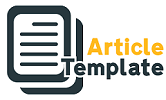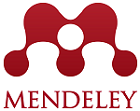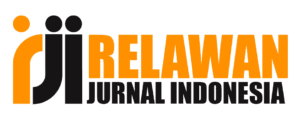The Fusion of the Bologna Process, Liberal Arts Education, and Indonesian Educational Transformation Ideas in the MBKM Policy
Abstract
Higher education in Indonesia is undergoing a vital transformation through the presence of the MBKM (Merdeka Belajar Kampus Merdeka) policy, which combines the principles of the Bologna Process (BP) and Liberal Arts Education (LAE) to create an inclusive and dynamic learning environment. Under this context, this article aims to investigate the urgency and implications of combining the BP paradigm, LAE, and the idea of Indonesian educational transformation embedded in the MBKM policy and present the findings through a narrative overview approach that involves in-depth analysis of literature related to BP, LAE, and MBKM implementation in Indonesia. Through a narrative overview process, this article highlights the importance of academic freedom, a holistic approach, and the role of students as active agents in the learning process. The research findings confirm that MBKM is a step forward in providing relevant and responsive higher education in Indonesia. The fusion of the BP and LAE paradigms in MBKM holds a strong foundation for inclusive learning oriented towards preparing students with critical skills, adaptability and social responsibility. Thus, this article presents a complete understanding of the urgency and implications of combining the BP and LAE paradigms in MBKM and accentuates the importance of innovative interventions preparing students to become skilled and knowledgeable leaders in an era that continues to change rapidly.
References
AAC&U. (2020). What liberal education looks like. Retrieved from http://www.aacu.org/leap/what-is-a-liberal-education.
Afriansyah, A., Voak, A., Fairman, B., Suryono, I. L., & Muslim, F. (2022). Implementing kampus merdeka: The journey of a thousand miles begins with one tentative step. Journal of Resilient Economies, 2(2), 48–54. https://doi.org/10.25120/jre.2.2.2022.3938
Almumen, H. A. (2020). Universal design for learning (UDL) across cultures: The application of UDL in Kuwaiti inclusive classrooms. SAGE Open, 10(4). https://doi.org/10.1177/2158244020969674
Anggara, S. (2023). Exploring the effectiveness of merdeka belajar kampus merdeka policy in Indonesian higher education institutions: An in-depth case study analysis. AL-ISHLAH: Jurnal Pendidikan, 15(2), 1563–1570. http://dx.doi.org/10.35445/alishlah.v15i2.3885
Becker, J. (2022). The global liberal arts challenge. Ethics & International Affairs, 36(3), 283–301. https://doi.org/10.1017/S0892679422000314
Borsetto, E., & Saccon, C. (2022). A European perspective on the internationalization strategies and accreditation of business schools. Paper presented at the 8th International Conference on Higher Education Advances (HEAd’22) Universitat Politecnica de Valencia, Valencia. http://dx.doi.org/10.4995/HEAd22.2022.14687
Brøgger, K. (2019). Governing through standards: The faceless masters of higher education: The Bologna Process, the EU and the open method of coordination. Springer Nature.
Bruce, A., Beuthin, R., Sheilds, L., Molzahn, A., & Schick-Makaroff, K. (2016). Narrative research evolving: Evolving through narrative research. International Journal of Qualitative Methods, 15(1). https://doi.org/10.1177/1609406916659292
Castelló, M., García-Morante, M., Díaz, L., Sala-Bubaré, A., & Weise, C. (2023). Doctoral trends development in Spain: From academic to professional paths. Innovations in Education and Teaching International, 60(5), 736–747. https://doi.org/10.1080/14703297.2023.2237958
Domínguez, J. F. C., & Gutiérrez, C. R. (2023). Bologna Process and its impact on Spanish graduates employability: Good news yet to come. Higher Education Policy, 36(3), 556–577. https://doi.org/10.1057/s41307-022-00274-0
Dwijayanti, I., Suciati, S., Ardini, S. N., Ulfa, M., & Saputro, B. A. (2023). The implementation of MBKM policy towards university’s IKU in Indonesia. IOSR Journal of Research & Method in Education (IOSR-JRME), 12(3), 57–66. https://doi.org/10.9790/7388-1203055766
Gareis, P., & Broekel, T. (2022). The spatial patterns of student mobility before, during and after the Bologna Process in Germany. Tijdschrift voor economische en sociale geografie, 113(3), 290–309. https://doi.org/10.1111/tesg.12507
Gavidia, L. A. P., & Adu, J. (2022). Critical narrative inquiry: An examination of a methodological approach. International Journal of Qualitative Methods, 21. https://doi.org/10.1177/16094069221081594
Godwin, K. A. (2020). Liberal arts education, going global. In P. N. Teixeira & J. C. Shin (Eds.). The international encyclopedia of higher education systems and institutions. Springer, pp. 2001–2004. https://doi.org/10.1007/978-94-017-8905-9_219
Grek, S., & Russell, I. (2023). Beyond Bologna? Infrastructuring quality in European higher education. European Educational Research Journal, 0(0). https://doi.org/10.1177/14749041231170518
Han, Y., & Yang, J. (2023). New liberal arts construction dynamics and development path based on citespace. Paper presented at the 2023 4th International Conference on Artificial Intelligence and Education (ICAIE, 2023) (pp. 526–536). https://doi.org/10.2991/978-94-6463-242-2_65
Hazelkorn, E. (2018). The accountability and transparency agenda: Emerging issues in the global era. In A. Curaj et al. (Eds.). European higher education area: The impact of past and future policies. Springer Nature, pp. 423–440.
Hinchliffe, G. (2017). Education, learning and freedom. Journal of Philosophy of Education, 51(2), 430–442. https://doi.org/10.1111/1467-9752.12234
Kaçaniku, F. (2020). Towards quality assurance and enhancement: The influence of the Bologna Process in Kosovo’s higher education. Quality in Higher Education, 26(1), 32–47. https://doi.org/10.1080/13538322.2020.1737400
Khelifi, S. (2023). Informal university entrepreneurship: The missing link in transition higher education systems. International Journal of Educational Development, 97, 102725. https://doi.org/10.1016/j.ijedudev.2023.102725
Kushnir, I., & Brooks, R. (2023). UK membership (s) in the European higher education area post-2020: A ‘Europeanisation’ agenda. European Educational Research Journal, 22(5), 718–740. https://doi.org/10.1177/14749041221083073
Knight, J. (2015). International universities: Misunderstandings and emerging models? Journal of Studies in International Education, 19(2), 107–121. https://doi.org/10.1177/1028315315572899
Lodhi, I., & Ilyassova-Schoenfeld, A. (2023). The Bologna Process and its impact on the higher education reforms in Kazakhstan: A case of policy transfer and translations. Studies in Higher Education, 48(1), 204–219. https://doi.org/10.1080/03075079.2022.2124244
Madsen, L. M., & Holmegaard, H. T. (2023). Science students’ post-bachelor’s choice narratives in different disciplinary settings. European Educational Research Journal, 22(2), 216–235. https://doi.org/10.1177/14749041221095151
Magro, A., Gring-Pemble, L. M., & Bishop, C. R. (2022). Integrating liberal education, business, and high-impact practices–The case of George Mason University’s School of Business. Journal of International Education in Business, 15(1), 32–51. https://doi.org/10.1108/JIEB-03-2021-0041
Mngo, Z. (2023). A case for caution: Twenty-one years of Bologna and ramifications for the US higher education. Journal of Education, 203(3), 520–530. https://doi-org/10.1177/00220574211032583
Mujiwati, Y., Hamzah, M. R., Daryono, D., & Laili, I. (2023). Implementation of the Ministry of Education and Culture's independent campus learning program (MBKM) policy at Universitas PGRI Wiranegara. International Journal of Humanities Education and Social Sciences, 3(2), 1004–1014. https://doi.org/10.55227/ijhess.v3i2.698
Mula-Falcón, J., & Caballero, K. (2023). Academics' perceptions regarding performance evaluations and the consequences for their professional and personal activity. Journal of Applied Research in Higher Education. https://doi.org/10.1108/JARHE-05-2023-0183
Naidu, S. (2017). How flexible is flexible learning, who is to decide, and what are its implications? Distance Education, 38(3), 269–272. https://doi.org/10.1080/01587919.2017.1371831
National Leadership Council for Liberal Education and America’s Promise (LEAP) (2007). College learning for the new global century: A report from the National Leadership Council for liberal education and America’s promise. Association of American Colleges and Universities.
O'Keefe, R. D., Hamer, L. O., & Kemp, P. R. (2015). Characteristics of a "teaching institution": Administrative objectives, actions, activities and assessment. Journal of Academic Administration in Higher Education, 11(2), 69–78.
Pare, G., Trudel, M. C., Jaana, M., & Kitsiou, S. (2015). Synthesizing information systems knowledge: A typology of literature reviews. Information & Management, 52, 183–199. http://dx.doi.org/10.1016/j.im.2014.08.008
Power, J. B. (2017). Not leaving the conversation behind: Approaching a decade of teaching reflective journal writing at a liberal arts college. Reflective Practice, 18(5), 713-724. https://doi-org/10.1080/14623943.2017.1324417
Pulino, S. C. (2022). Embedding the entrepreneurial mindset at a liberal arts university. Journal of the International Council for Small Business, 3(1), 62–67. https://doi.org/10.1080/26437015.2021.1958661
Purwanti, E. (2021). Preparing the implementation of merdeka belajar–kampus merdeka policy in higher education institutions. Paper presented at the 4th International Conference on Sustainable Innovation 2020–Social, Humanity, and Education (ICoSIHESS, 2020) (pp. 384–391). Atlantis Press. https://doi.org/10.2991/assehr.k.210120.149
Raudenská, P., & Mysíková, M. (2023). Returns to bachelor’s and master’s degree in tertiary education: The case of the Czech Republic after the Bologna Process. Innovation: The European Journal of Social Science Research, 36(3), 498–514.
Reimer, D., & Schwabe, U. (2023). Stability or change? Social inequality at the transition from bachelor’s to master’s degree programmes in Germany. Empirical evidence from four graduate cohorts. European Educational Research Journal, 22(2), 170–197. https://doi.org/10.1177/14749041221101293
Sa’diyah, M., Nurhayati, I., Endri, E., Supriadi, D., & Afrianto, Y. (2022). The implementation of independent learning independent campus: The new paradigm of education in Indonesia. Journal of Educational and Social Research, 12(4), 289–299. https://doi.org/10.36941/jesr-2022-0114
Salas-Velasco, M. (2023). Propensity for self-employment in a model of occupational choice: Evidence from a cohort of recent university graduates in Spain. Sustainability, 15(4), 3400. https://doi.org/10.3390/su15043400
Sapargaliyeva, A. Z., Shynybekova, A. S., Molbassynova, Z. M., Tasbolatova, R., & Nurzhanova, T. T. (2023). Innovative educational technologies and competencies in higher education. Higher Education for the Future, 10(1), 110–122. https://doi.org/10.1177/23476311231155523
Sartika, D. (2020). Essay: Liberating learning in Indonesian higher education. Inside Indonesia. Retrieved from https://www.insideindonesia.org/archive/articles/essay-liberating-learning-in-indonesian-higher-education
Stensaker, B. (2018). External quality assurance in higher education. In P. N. Teixeira & J. C. Shin. (Eds.) Encyclopedia of international higher education systems and institutions. Springer, pp. 1–6. https://doi.org/10. 1007/978-94-017-9553-1_523-1.
Sukhera, J. (2022). Narrative reviews: Flexible, rigorous, and practical. Journal of Graduate Medical Education, 14(4), 414–417. https://doi.org/10.4300%2FJGME-D-22-00480.1
Suleman, F., & Videira, P. (2023). From academic autonomy to close collaboration: The employability strategies of local higher education institutions in Portugal. Higher Education Policy, 1–18. https://doi.org/10.1057/s41307-023-00329-w
Tajik, M. A., Namyssova, G., Shamatov, D., Manan, S. A., Zhunussova, G., & Antwi, S. K. (2023). Navigating the potentials and barriers to EMI in the Post-Soviet region: Insights from Kazakhstani university students and instructors. International Journal of Multilingualism, 1–21. https://doi.org/10.1080/14790718.2023.2265428
Teichler, U. (2019). Bologna and student mobility: A fuzzy relationship. Innovation: The European Journal of Social Science Research, 32(4), 429–449. https://doi.org/10.1080/13511610.2019.1597685
Tjaija, A. (2022). Implementation of ‘freedom to learn, independent campus’ (MBKM) policy. AL-ISHLAH: Jurnal Pendidikan, 14(1), 319–328. http://dx.doi.org/10.35445/alishlah.v14i1.2115
Tomicic, A. (2019). American dream, Humboldtian nightmare: Reflections on the remodelled values of a neoliberalized academia. Policy Futures in Education, 17(8), 1057–1077. https://doi.org/10.1177/1478210319834825
Torotcoi, S. (2017). Politics and policies of higher education: Policy transfer and the Bologna Process. Journal of Research in Higher Education, 1(2), 6–30.
Ulriksen, L. (2023). Students’ choices and paths in the Bologna degree structure: An introduction to the special issue. European Educational Research Journal, 22(2), 135–145. https://doi.org/10.1177/14749041211022201
Utami, Y. P., & Suswanto, B. (2022). The educational curriculum reform in Indonesia: Supporting “independent learning independent campus (MBKM)”. SHS Web of Conferences, 149. https://doi.org/10.1051/shsconf/202214901041
Vale, A., Martins, A., & Coimbra, N. (2023). Experience of remote teaching in higher education: A scenario of challenges and opportunities. Journal of Higher Education Theory and Practice, 23(2), 8–17.
Van Vechten, R. B. (2022). Ten tips for landing a teaching job at a liberal arts institution. Journal of Political Science Education, 18(3), 390–397. https://doi.org/10.1080/15512169.2022.2044343
Voak, A., Helmy, A., Fairman, B., & Afriansyah, A. (2024). Kampus merdeka: Indonesia’s once-in-a-generation response to educational reform. TVET @sia, 22, 1–21.
Watanabe, R., & Mcgaw, B. (2004). Student learning: Attitudes, engagement and strategies. In OECD. (Ed.). Learning for tomorrow's world: First results from PISA 2003. OECD Publishing, pp. 109–158. https://doi.org/10.1787/9789264006416-en
Yang, Y. (2020). The construction of new liberal arts should return to the university spirit. Learning & Education, 9(3), 36–39.
Yoto, Marsono, Suyetno, A., Mawangi, P. A. N., Romadin, A., & Paryono. (2024). The role of industry to unlock the potential of the Merdeka curriculum for vocational school. Cogent Education, 11(1), 2335820. https://doi.org/10.1080/2331186X.2024.2335820
Zajić, J. O., & Maksimović, J. (2023). The Bologna in the field of social sciences and humanities: A precondition for successful university education. Athens Journal of Education, 10(4), 701–716. https://doi.org/10.30958/aje.10-4-8
Zakharova, A., Soboleva, E., & Biserova, G. (2022). Organizing students’ independent work: An approach for graduate and undergraduate students. International Journal of Learning, Teaching and Educational Research, 21(1), 51–66. https://doi.org/10.26803/ijlter.21.1.4
Zha, Q. (2017). What is liberal arts education in the 21st century? An exploration starts with Chinese universities and goes beyond China. In K. A. Godwin & N. Pickus (Eds.). Liberal arts & sciences innovation in China: Six recommendations to shape the future (CIHE Perspectives, No. 8). The Boston College Center for International Higher Education, pp. 40–48.
Zha, Q. (2022). How should liberal arts education evolve in the twenty first century? An exploration of universities in China and beyond. Educational Philosophy and Theory, 54(12), 2082–2096. https://doi.org/10.1080/00131857.2021
Zhang, W., Zhong, X., Fan, F., & Jiang, X. (2023). Unlocking the creative potential of Chinese new liberal arts: The role of interdisciplinary education, knowledge integration, and metacognitive awareness. The Asia-Pacific Education Researcher, 1–12. https://doi.org/10.1007/s40299-023-00788-0
Copyright (c) 2024 Journal of Governance and Local Politics (JGLP)

This work is licensed under a Creative Commons Attribution-NonCommercial-NoDerivatives 4.0 International License.










